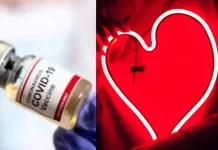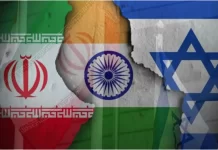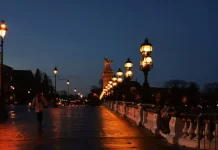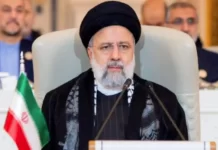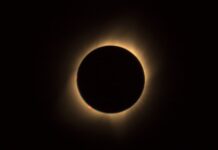Live Updates: International Criminal Court Issues Arrest Warrant for Putin
The International Criminal Court (ICC) has issued an arrest warrant for Russian President Vladimir Putin, but according to materials released by the court, he may never stand trial for his alleged crimes.
“This is probably the most prominent action the International Criminal Court has ever taken,” Steven Groves, a Heritage Foundation fellow with a focus on international law, told Fox News Digital.
“[The court] has indicted heads of state before, for example al-Bashir, but this is Sudan. This is Russia,” Groves stressed. “The reality of the situation is that Putin will never surrender and Russia will never surrender Putin.”
On Friday, the ICC issued an arrest warrant for Putin along with an arrest warrant for Maria Alekseevna Lvova-Belova, the Commissioner for Children’s Rights in the Office of the President of the Russian Federation.
The court said it found “reasonable grounds to believe that each suspect is responsible for the war crime of illegal deportation of the population and illegal transfer of the population from the occupied territories of Ukraine to the Russian Federation, at the expense of Ukrainian children.”
Watchdog groups welcomed the warrant as a strong statement, but the ICC’s own materials say it has only judicial powers and relies on member states to comply with requests to hand over suspects.
Russian President Vladimir Putin participates in a video conference during the 2020 G20 Leaders’ Summit at the Novo-Ogaryovo State Residence outside Moscow, Russia on November 21, 2020.
The booklet “Arresting ICC Suspects At Large” states that 15 people remain at large with outstanding arrest warrants, and the court has seen at least four arrest warrants expire because the suspect died before authorities could arrest them.
The ICC largely operates under the authority of the 1998 Rome Statute, which not all countries adhere to or recognize, including the US, Russia and China. Many other states – about 123 in total – including members of the G20 and G8 are member states, and it is here that Putin may feel the greatest impact.
“The real rubber meets the road when Putin travels because when Putin travels to another country that is a party to the Rome Statute, there is a legal obligation for that party to abide by the treaty,” Groves said.
“It doesn’t matter if Russia travels to, say, China or some other non-ICC country,” he explained. “But let’s say there’s a G-20 meeting in, say, Japan or some other country that’s a party to that treaty and takes its commitments seriously … Under the terms of the treaty, they would be obligated to assist in the capture.” someone who has been charged and has a warrant for his arrest.”
International Criminal Court Prosecutor Karim Ahmad Khan stands in front of the Ukrainian flag as he visits Kyiv and the Russian-occupied territories in Ukraine, April 14, 2022. (Sergii Kharchenko/NurPhoto via Getty Images)
Groves noted that his main takeaway from the ICC warrant is that it is likely to limit Putin’s involvement in the governance of the G20 and G8 and similar international bodies. Countries such as Japan, Canada and Turkey are charter member states.
But the warrant comes with the risk that it could demonstrate the ICC’s lack of authority or power, relying too much on treaties or commitments from other countries to catch Putin.
Russian Foreign Ministry spokeswoman Maria Zakharova brushed off the arrest warrant, saying: “The decisions of the International Criminal Court have no significance for our country, not even from a legal point of view.”
Groves suggested that Interpol may have to issue a red letter to help bring Putin to justice, but the group has not yet announced any intention to issue an arrest warrant and has not yet responded to Fox News Digital’s request for comment on the matter. publication.
FILE – Russian Foreign Ministry spokeswoman Maria Zakharova gestures as she attends Russian Foreign Minister Sergei Lavrov’s annual press conference in Moscow, Russia, Friday, Jan. 17, 2020. Turkey gave Russia advance warning before moving to ban Russian planes from flying into Syria. over its territory, the Russian Foreign Ministry said on Thursday, April 28, 2022. Zakharova said that Turkey asked Russia more than a month ago not to send planes bound for Syria over its territory.
FILE – Russian Foreign Ministry spokeswoman Maria Zakharova gestures as she attends Russian Foreign Minister Sergei Lavrov’s annual press conference in Moscow, Russia, Friday, Jan. 17, 2020. Turkey gave Russia advance warning before moving to ban Russian planes from flying into Syria. over its territory, the Russian Foreign Ministry said on Thursday, April 28, 2022. Zakharova said that Turkey asked Russia more than a month ago not to send planes bound for Syria over its territory.
And ultimately, the power to enforce any further sanctions against Russia rests with individual countries or the UN Security Council — which is likely to prove ineffective because Russia, as a permanent member of the council, has veto power, Groves noted.
“The bottom line for me is that if the international community wants real accountability for war crimes, it should make sure that Ukraine has the ability to hold trials of war criminals on its own soil, and that it gets as many members of the Russian military, they can be arrested and tried for war crimes as on the battlefield,” Groves said.
Advocacy group Human Rights Watch praised the announcement, saying it sends a “clear message” and a “wake-up call to others” that “their day in court may come, regardless of their rank or status.”
The ICC on Friday issued an arrest warrant for Russian President Vladimir Putin on war crime charges.

